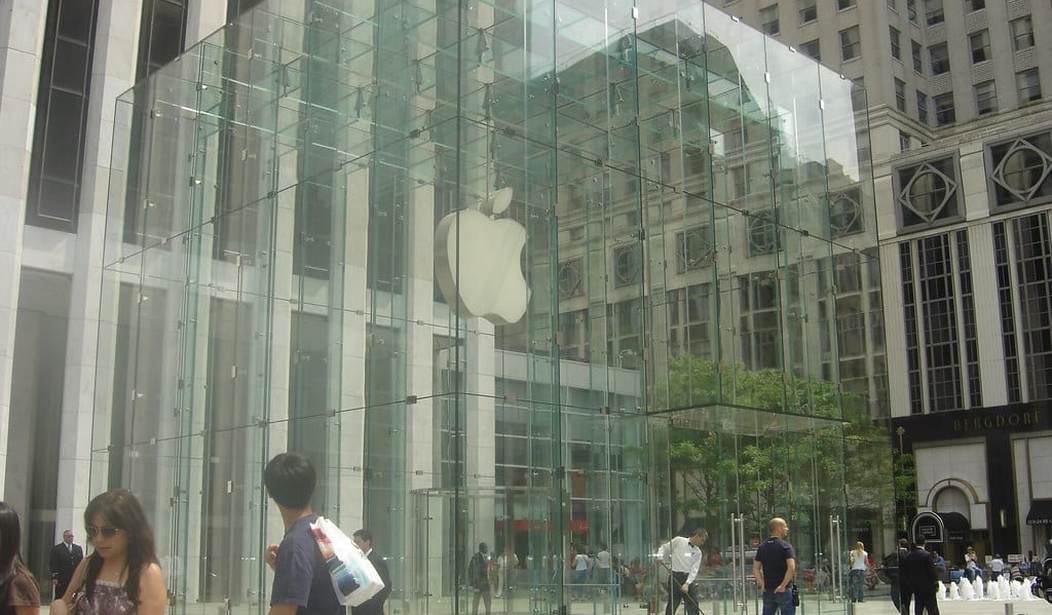Apple became a trillion-dollar company again last week, as rumors of a China trade deal drove the Cupertino tech giant’s shares to a new 52-week high. But Apple’s under-the-table dealings with China’s communist bosses have some of the company’s biggest and most public supporters angry as hell.
Last Thursday, after Apple banned the HKmap.live app, which allowed Hong Kong protestors to track (and avoid) massed riot police, well-known tech blogger and Apple developer John Gruber wrote, “I still haven’t seen which local laws it violates, other than the unwritten law of pissing off Beijing.” He added, “Capitulation is a bad look for Apple.” Indeed. Later that day, Gruber dissected CEO Tim Cook’s company-wide memo defending the move, and concluded that “it doesn’t add up.” He went on to write, “I can’t recall an Apple memo or statement that crumbles so quickly under scrutiny.” Gruber also said that Cook’s decision was “both sad and startling.”
Sad? Sure. Startling? I’m less sure, given how important the Chinese market is to Apple’s bottom line, and how vital China’s manufacturing sector is to Apple’s products. If there’s anything more unreasonable and demanding than a communist thug, it’s a communist thug flush with U.S. dollars.
Ben Lovejoy, another longtime Apple watcher, wrote for 9to5Mac on the same day last week that the company’s “relationship with China is turning into a massive liability.” Lovejoy detailed Apple’s recent history of kowtowing to Chinese interests:
Back in 2017, the Chinese government asked Apple to remove the New York Times app from the Chinese App Store; Apple complied.
Later the same year, China insisted that Apple remove more than 400 VPN apps from the App Store; Apple did so.
Again in 2017, the Chinese Ministry of Public Security asked Apple to remove Skype; the Cupertino company again did as requested.
Yesterday, it removed access to the Quartz news app; and today we’ve learned that it has, with a second U-turn, banned a Hong Kong protest app.
And it isn’t just apps. Lovejoy notes that “China introduced a new law in 2017 that required foreign companies to use Chinese companies to store user data.” What that means is, unlike the rest of the world, where Apple keeps private data secure and encrypted, Chinese customers’ private data is stored by a Chinese-owned third party. “Apple insists that data is encrypted and only it holds the keys,” Lovejoy writes, “but there is understandable skepticism about this” because obtaining a warrant is “a mere formality in China.”
Late Friday, Apple Insider writer Mikey Campbell revealed that “Apple told Apple TV+ content creators not to besmirch China.” The order apparently came from on high, “by Apple SVP of Internet Software and Services Eddy Cue… and head of international content development Morgan Wandell.” If capitulation to Chinese demands is “a bad look” for Apple, what do you call it when the company does so preemptively?
Bloomberg’s Mark Gurman has long been known as an Apple blogger with great sources inside the company, and usually writes well-informed pieces about the company’s plans and processes. He noted that Greater China “is Apple’s largest market after the U.S.,” which is almost certainly why they “recently pulled the Taiwan flag emoji from some iPhones.” Gurman says that move underscores “the difficult balance the company must strike in supporting free speech while appeasing China.”
Except that it doesn’t appear to have been very difficult at all for Apple. The company seems to have one set of rules for the rest of the world, and another for China. And the rules for China seem to consist of: Do what Beijing wants, do it quickly, and make lame excuses for it.
Another longtime Apple writer and developer, Jim Dalrymple, is such a fan of the company that his popular “Loop” blog at loopinsider.com is named for the street address of the company’s old headquarters at 1 Infinite Loop. Nevertheless, his co-blogger Dave Mark wrote on Friday that “Apple PR has their work cut out for them” regarding China and Hong Kong. He then went on to berate the company for its deeply-flawed “Catalina” update to the Mac operating system. Mark’s piece quotes another Apple developer, Tyler Hall, concluding that Cook’s “annual, big-splash release cycle is fundamentally breaking engineering.” Catalina shipped last week because, it seems, marketing dictated that it must. But Catalina is the first upgrade to macOS which I didn’t install on Day One, won’t install any time soon, and have recommended everyone else do likewise. And the less said about iOS 13’s staggered, buggy release, the better.
On the one hand, Apple has Hong Kong legislator Charles Mok admonishing them that “Hongkongers will definitely look closely at whether Apple chooses to uphold its commitment to free expression and other basic human rights, or become an accomplice for Chinese censorship and oppression.” On the other, you have the company’s biggest boosters here in the U.S. and Canada complaining that the company has lost two threads: Apple’s commitment to privacy and expression, and its commitment to quality design and engineering.
That’s not the kind of storm a company just rides out. That’s the kind of storm where leadership needs to make an honest assessment of its practices, make real changes to how it conducts its business, and dare I say it, “think different.”










Join the conversation as a VIP Member